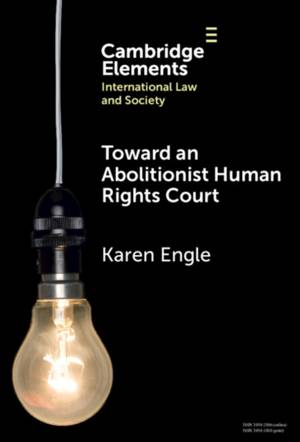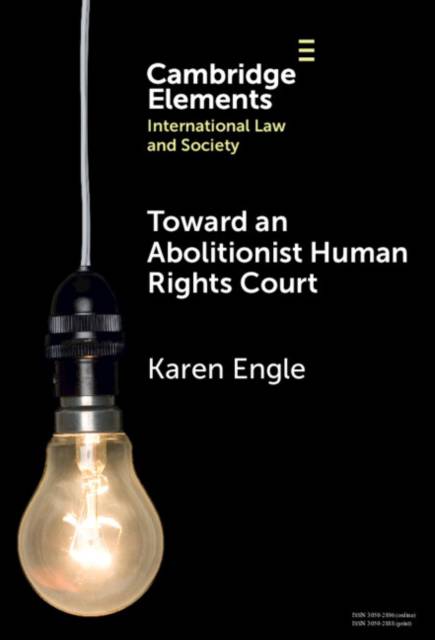
- Afhalen na 1 uur in een winkel met voorraad
- Gratis thuislevering in België vanaf € 30
- Ruim aanbod met 7 miljoen producten
- Afhalen na 1 uur in een winkel met voorraad
- Gratis thuislevering in België vanaf € 30
- Ruim aanbod met 7 miljoen producten
Zoeken
Toward an Abolitionist Human Rights Court
Rethinking Responses to Gendered and Racialized Violence
Karen Engle
€ 112,95
+ 225 punten
Uitvoering
Omschrijving
Contemporary international human rights law increasingly obligates states to heighten their criminalization of certain human rights violations, including gendered, racialized, and homophobic violence. This Element uses prison and police abolitionist thought to challenge this trend. It focuses on the European Court of Human Rights (ECtHR), arguing that the Court's reliance on punishment and policing threatens to undo earlier European approaches to criminal law and human rights that resonate with abolitionist thought. It also contends that the criminalization approach provides the Court with an alibi for not recognizing or attending to the deeply structural racialized, colonial, sexual, gendered, and homophobic violence in Europe, particularly but not only against Roma communities and Black and Muslim migrants. Encouraging human rights advocates and judges to take seriously prison and police abolition in Europe and elsewhere, the Element calls for the ECtHR to pave the way for an abolitionist-oriented turn among human rights courts.
Specificaties
Betrokkenen
- Auteur(s):
- Uitgeverij:
Inhoud
- Aantal bladzijden:
- 82
- Taal:
- Engels
- Reeks:
Eigenschappen
- Productcode (EAN):
- 9781009690133
- Verschijningsdatum:
- 3/07/2025
- Uitvoering:
- Hardcover
- Formaat:
- Genaaid
- Afmetingen:
- 152 mm x 229 mm
- Gewicht:
- 281 g

Alleen bij Standaard Boekhandel
+ 225 punten op je klantenkaart van Standaard Boekhandel
Beoordelingen
We publiceren alleen reviews die voldoen aan de voorwaarden voor reviews. Bekijk onze voorwaarden voor reviews.








